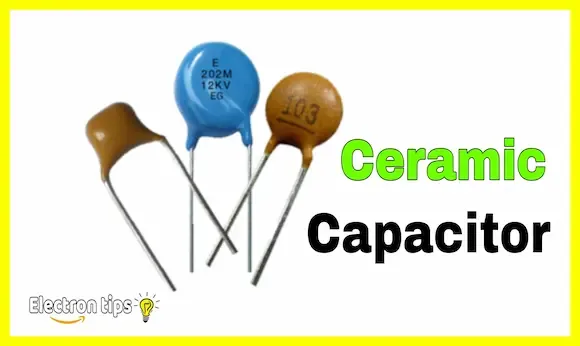 |
| What is Capacitor , Symbol, structure , types |
What is Capacitor , Symbol, structure , types
Welcome to the Electron Tips website. Our topic today is about the most important element in the field of electronics engineering, which is the capacitor. What is a capacitor? And how does the electrolytic capacitor work? And what is the main role of the capacitor in electrical circuits? What types of electrolytic capacitors are available?
What is Capacitor :
 |
| Capacitor structure |
Capacitor Symbol :
 |
| Capacitor symbol |
How does a capacitor work :
When the electric capacitor is connected inside an electronic circuit that contains other electronic components and a source of electric current, the capacitor is charged by storing electric charges on its positive and negative internal plates until the capacitor is fully charged according to its capacity.
During the separation of the electric current source from the circuit, the capacitor will in turn, he discharges the electric charges that he charged while there is an electric voltage source, and to make sure of this, create an electrical circuit that contains a capacitor and an LED lamp in parallel, after charging the capacitor, press the circuit breaker to separate the power source from the circuit, and you will notice that the LED lamp will light up Dim then it will clear up.
Types of electrical capacitors :
 |
| Capacitors types |
There are many electrical capacitors that differ among themselves according to their use in electrical circuits, and these are some of the most famous electrical capacitors :
ceramic capacitor:
It is a rather small capacitor, characterized by high accuracy at high frequencies, and its outer shape is often in the form of a circle, and it stores few electrical charges, as its capacity ranges from 1 microfarad to 1 picofarad.
 |
| Ceramic capacitor |
Electrolyte capacitor :
This type of capacitor is available in many shapes and types, and it is a non-polarized electrolytic capacitor, meaning that it is used in AC circuits.
 |
| Electrolyte capacitor |
mica capacitor:
 |
| Mica capacitor |
How to connect an electrolytic capacitor :
There are two types of capacitor connection within electrical circuits, the first type is connected in series and the second type is connected in parallel, and each connection is used for a specific purpose.
important note
The function of an electrolytic capacitor in an electric circuit :
The electric capacitor has many functions and uses within electronic circuits, and we mention some of them, but are not limited to:
The electric capacitor is widely used in converting from alternating current to direct current, in order to smooth the output current and obtain a constant current.
Available in the flash of smart phones and mobile phones.
It is used in fans and electric motors, where it is connected in parallel with the fans and motors in order to increase and maintain their capacity.
It is used in circuits of electronic components such as resistors, diodes, and coils to improve their performance.

Comments
Post a Comment